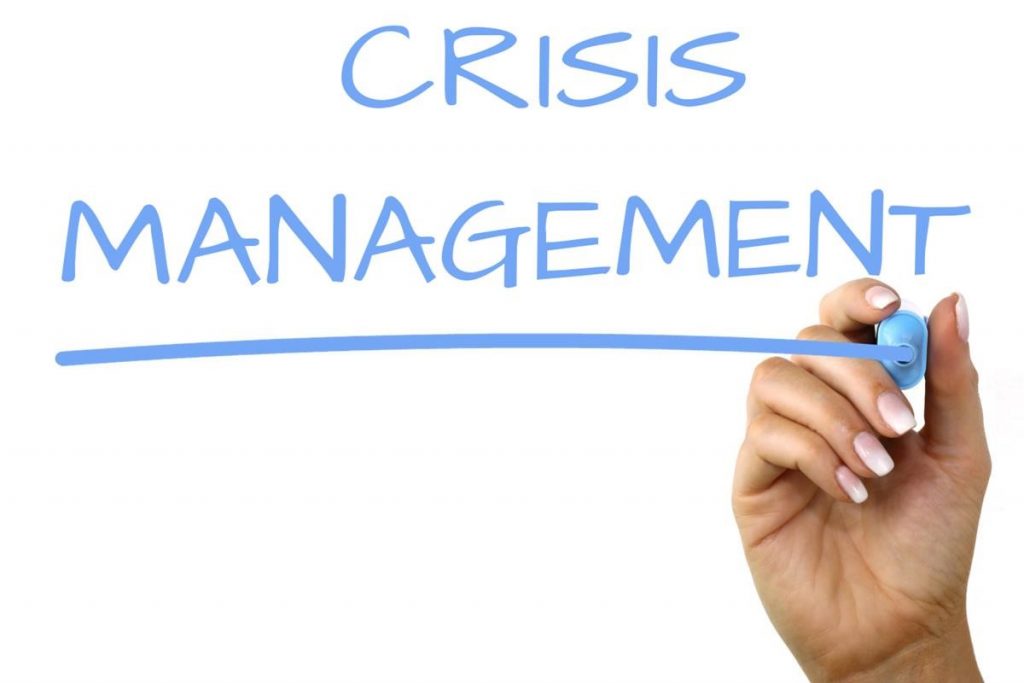
Starting and growing a business including raising Investment will be harder and take longer.
It will now take on average 30% longer to raise investment so in the UK it will be, for a Series A Company with revenue, instead of 6-9 months, an average of 9-18 months.
We are here to provide that support and Prepare you for this delayed Investment. Also, you will have to re evaluate your Valuation and will need to at least make a 10% reduction to your ASK to your final valuation.
I always work on a having 3 VALUATIONS and normally send the middle ground.
There will be a lot of emphasis on ‘RUNWAY’ AND ‘BURNRATE’ https://steveblank.com/2020/03/17/the-virus-survival-strategy-for-your-startup/amp/ (This is a great article on SURIVIVAL KIT for Start Ups)


We are now going to share with you LINKS to support you during this crisis!
There is an ART to fundraising which I am mastering every day. I have been in this space for the last 10 years but some of our partners have been in the space for a lifetime.
I learn every day a new Strategy to raise and this guy is a master at https://alejandrocremades.com/fundraising-training. I also use his Pitch Deck Templates.
Alejandro Cremades leads the vision and execution for Panthera Advisors as its Co-Founder.

HOW MUCH TO RAISE IN THIS CLIMATE?
We are entering a NEW PHASE where ‘CASH IS WHAT MATTERS’ and many Investors at the beginning of the month went on a selling frenzy but they will change once the feeding frenzy calms down.
There will no longer be the ridiculous valuations that were starting to become common practice in the US. You will have to be a lot more conservative https://alejandrocremades.com/how-to-figure-out-how-much-capital-to-raise/
THE INVESTOR LANDSCAPE 2020 DURING A PANADEMIC
I noted, that from the beginning of March 2020 business was quiet, as most of us where and still are in a state of shock.
Last week business picked up a little as we near end of March Q1. Some of my Investors are stating that they are ‘OPEN FOR BUSINESS’ to review ‘DEAL FLOW’ but it will take longer, and some are putting ‘DEAL FLOW’ on hold. I am advised from some Investors they are putting off viewing ‘DEAL FLOW’ until June 2020 so you must be ready!
HOW DO FUNDING ROUNDS WORK NOW?
How Funding Rounds Work For Start-ups
Are you wondering how funding rounds work for start-ups?

The big numbers thrown around in the media might make you think that one big fundraising campaign or two is enough to finance your business idea for life. It doesn’t work like that. Start-up funding is done through a series of stages of rounds.
As we share with our members to help you with your fundraising. With fundraising, each round typically targets a different type of investor, for different amounts of capital. Investors will have differing expectations of entrepreneurs and their start-ups at each stage. While there are always exceptions, these rounds often come 12 to 18 months apart. But one of our Partners https://seedlegals.com/ have a different view; to “raise faster”. I can endorse this view and would like to add that i believe we will see increased creativity during this period.
Once you start, you’ll always be in fundraising mode. So, you had better know your stages, how to stay ahead and be prepared to ace them.
Bootstrapping
If you are wondering about how funding rounds work for start-ups remember that most start-ups can start out by bootstrapping. This can be a short term or medium-term solution. Many of our largest and most successful start-ups and entrepreneurs got off the ground with just £1k More with under $10,000. Indeed, I personally BOOTSTRAPPED my business with 10k in 2014. I have never given away any equity and have remained Cash Flow positive with a view now for 2021 to raise equity.
That may not sound like it will go very far for you, but if you are conservative and creative it might just be enough to start generating revenues. The longer you can bootstrap the more equity and negotiating power you will preserve.
This strategy will also help you get the most out of every penny, and keep you focused. When you do have money, you will use it far more efficiently.
If you don’t have the cash to self-fund your venture, you may be able to carry it with personal credit, and small business credit cards and lines of credit. Just be wary of taking on heavy and expensive debt. There are also family and friends.
If you have big hopes for your start-up, you will eventually want to bring in outside money.
Pre-Seed Funding
There isn’t much in the way of professional and institutional capital available at this stage. There may be grants and competitions to win these tend to be if supported in a Hub.
Most of the money at this start-up stage will come from friends and family. Even if you don’t think your immediate family and friends have this level of money, their friends and family and their friends may consider. Leverage your Network!
Push your circle out enough and there will be people who have the ability and interest in investing. Just be careful of who you give equity to, and how much you give up at this stage.
Seed Stage Funding
When it comes down to how funding rounds work for start-ups this is where funding begins to become more formal. Entrepreneurs may still be largely pitching on an idea at this stage. Though some may be further along.
Start-up accelerators may participate with modest fix and six-figure sums at this stage. Although there may be more funds seeking to secure better terms in this round, the most common type of investor will be angels.
Investing at this stage is a sizable risk for investors. They’ll take an equally sizeable piece of your equity. It depends on each country and this is where it is advisable to seek a Lead Investor to attract other investors in the form of an Angel Investor. They are to be found on LinkedIn – Angel Syndicates and Groups and I myself am an Angel Investor part of the UKBAA and also in a Women only Angel Syndicate. Most Angel Groups in the UK have monthly Pitching competitions, and, in the USA, they are mostly done on line first with a call into a last Pitching event. Pitching rounds are now in the UK done online with the likes of Dorset Angels and Minerva Angels moving online.
Your personal network, the strength of your relationships and pitch deck is what will get you through this round. We will be supporting this with a Platform for streaming videos of your Pitch Deck and a platform that will allow you to create your own documents.
Series A Round
The series A is where start-up funding really starts to get more buttoned up if you are thinking how funding rounds work for start-ups. You’ve made good use of the money you’ve already raised. You have some proof that your solution is working and there is good demand and feedback. You have data that potential investors can look at, track and evaluate.
The money raised in this round will help you optimize, polish and systemize.
A wide variety of investors can participate in this stage. They may include angel groups, family offices, private equity, and corporate venture firms.
Series B Rounds
B is for building out. Your start-up is on pretty solid ground if you are ready to raise a series B. Only around half of all start-ups make it long enough to raise a series B.
You have a proven product or service. You have product-market fit. You have real data that investors can make a decision on. You will be raising at least tens of millions of £$ ETC.
Money raised at this stage will be used to scale and expand on everything you are doing right. You may be moving into new geographic regions, making new hires to handle higher volumes of business and to improve processes for where you want to get to next.
Your investors at this stage will already see some type of path to an exit. Though you will also have revenues, if not actual profits. Notable venture capital funds are going to be among the main participants in this round. Have you thought or planned your EXIT in your Pitch Deck how and when?
Series C & Beyond
A Series C round is for scaling. Your business works, there is potential for a big win on the horizon.
Investors at this stage are going to be among the largest venture capital funds, private equity firms, and corporations. They are going to be among the most demanding you’ve met yet. They have teams to conduct due diligence and negotiate. They are putting in sizable sums of their customers’ cash.
Your company is probably worth at least nine figures. The new money will be used to make big moves to dominate the market, expand to new areas, and even eat up other companies.
M&A and IPOs
The next major liquidity events for your start-ups are going to be an M&A deal or going public. Most founders will be saying farewell to their start-ups soon after this milestone. It’s a much different world heading up a public company or working for someone else as a department head. Most entrepreneurs just aren’t cut out for this for a long period of time.
You may have your SHARES tied up for a proportion of time or an earnout period which requires you to stay on with the company.
Be sure you are working with an accomplished M&A advisor at this stage who can help you assess and negotiate the best deal for you.


HOW TO PREPARE FOR INVESTOR MEETINGS
In my view I have not heard recently that Investors have asked for Business Plans and these seem to be old fashioned, but I have heard them ask for Balance Sheets and more financial information.
Regarding your Team’s CVs, I bring up their Profile on LinkedIn.
As for your Expectations and managing yours and theirs – know what you are prepared to give away at what valuation that is WHY I suggested 3 to give you a clear benchmark and be prepared to negotiate but not give your company away.
Listen – make notes and if in doubt ask them that can you have 24 hours to think over questions to get back to them.
Be clear – concise and smile and make the Investor aware that not only are you worth the Investment but that you will return it as you can and will deliver and you will be a pleasure to work with
GOOD LUCK – I also go prepared with a Draft copy of my Term Sheet.
FAMILY OFFICES
What is a Family Office https://www.toptal.com/finance/fundraising/family-office-investment-guide
They now have moved over to DIRECT INVESTING https://www-forbes-com.cdn.ampproject.org/c/s/www.forbes.com/sites/francoisbotha/2020/02/21/5-reasons-why-family-offices-are-focusing-on-direct-investments/amp/ It is a shift to stay! Which is music to my ears as my ‘SANDPIT’ is this space and UHNWI Investors and it has taken me over 3 years to create an ‘AVATAR’ of Investors in this space globally now at 45000 within our network and 30000 on LinkedIn. European old FAMILY OFFICES are open to Invest in Technology https://www-wsj-com.cdn.ampproject.org/c/s/www.wsj.com/amp/articles/europes-old-money-mingles-with-tech-startups-11583511875
UHNWI INVESTORS – HOW DO YOU FIND THEM?
https://www.wealthx.com/report/pillars-effective-ultra-high-net-worth-prospecting/
VENTURE CAPITAL
Some VC’s last week issued a ‘BLACK SWAN’ memo including the likes of Sequoia Capital, to whether the storm and close down the hatches and store cash. This article is for those raising in Technology during this period https://www.forbes.com/sites/nisaamoils/2020/03/13/early-stage-technology-funding-in-the-time-of-coronavirus/#28c6038c48ed
There is still as we say in the industry ‘DRY POWDER’ cash to splash to invest in https://www-forbes-com.cdn.ampproject.org/c/s/www.forbes.com/sites/francoisbotha/2020/02/21/5-reasons-why-family-offices-are-focusing-on-direct-investments/amp/ in particular Asia which has reached out to us for ‘DEAL FLOW’
When you are seeking VC Investment which mostly now is online unless you have like us a direct LinkedIn or email or WhatsApp contact then you should look at this model. You must have as we have done so the ability to ‘PIVOT’ https://www-forbes-com.cdn.ampproject.org/c/s/www.forbes.com/sites/francoisbotha/2020/02/21/5-reasons-why-family-offices-are-focusing-on-direct-investments/amp/ This framework has worked very well in Egypt
GOVERNMENT LINKS FOR SUPPORTING YOUR BUSINESS WITHIN THE UK
http://candwgrowthhub.co.uk/wp-content/uploads/2020/03/20200318-Covid-19-fact-sheet-update-CX-version-CLEAN_cx.pdf
Support for Smaller Businesses
You will have seen that the Chancellor has announced that the British Business Bank will manage the Coronavirus Business Interruption Loan Scheme (CBILS) which will become available in the week commencing 23 March 2020. It will be delivered through a range of over 40 accredited lenders and offer attractive terms for both businesses applying for new facilities and lenders, with the aim of supporting the continued provision of finance to UK businesses experiencing increased costs or disruptions to cashflow during the Covid-19 outbreak.
The scheme provides the lender with a government-backed guarantee against the outstanding facility balance, potentially enabling a ‘no’ credit decision from a lender to become a ‘yes’. The Government will cover the first six months of interest payments and any facility arrangement fees charged by lenders, so businesses will benefit from no upfront costs and lower initial repayments. The maximum value of a facility provided under the scheme will be £5m. Note that the borrower always remains 100% liable for the debt. To find out more about the CBILS and to share information with the various SMEs you work with, please go to: www.british-business-bank.co.uk/CBILS
Any business interested in applying to CBILS should talk to their bank or finance provider (not the British Business Bank) as soon as possible and discuss their business plan with them. This will help the finance provider to act quickly once the Scheme has launched.
In addition to the Coronavirus Business Interruption Loan Scheme the government has announced a series of other measures to help businesses. For more information please visit the government’s Covid-19 business support website here.
THE IMPACT OF THE CORVID-19 ON START UPS AND TECH IN PARTICULAR
Those in video conferencing, food delivery, and health are outperforming the market and those who are raising in Travel, advertising, retail and mobility have been hit the hardest.
https://blog.dealroom.co/impact-of-the-corona-crisis-on-startups-tech/
SURVIAL SPREAD SHEET 2020
You could create a Spread Sheet on what is happening in your Country as to Events https://docs.google.com/spreadsheets/d/1hPMhndCjXWDblBibNtyBkvAWOM72mYr10h-UpmuVXtw/htmlview#
CREATE A STRATEGY TO GET YOUR BUSIENSS THROUGH THIS UNKOWN AND UNCERTAIN TIMES
We all need a Contingency Plan and we had to in both Teams do a complete ‘TURNAROUND’ and pivot to provide a continual service to our clients and Investors. https://www-forbes-com.cdn.ampproject.org/c/s/www.forbes.com/sites/stephenwunker/2020/03/23/business-strategy-through-four-phases-of-the-coronavirus-crisis/amp/
Though these are very sad times and most of us are still in shock- lets remain POSITIVE and look for a future and keep focussed on our goals and dreams. Some Investments have been formed during times of stress i.e. Airbnb etc. Now it is the time for the likes of Zoom!

BE AWARE – TERM SHEETS
I have already heard that some VC’s (particularly in the US) are withdrawing their Term Sheets and issuing new or hanging on to them.
I also saw a strange TERM SHEET this morning that one of my clients was offered locked into a Convertible Note, with an Insurance Bond – double dip fees are not not normal here but they in the UAE.
Be careful and have your Advisor and Lawyer check through your documents.
SURVIVAL – BUSINESS AS USUAL FOR SOME INVESTORS
SOCIAL DISTANCING IS NOW THE KEY TO KEEPING US AND OUR LOVED ONES SAFE! – Stay Safe and stay connected.
Karen Melonie Gould
Founder/CEO: www.gateway2enterprise.co.uk

